Nutritional Content
Spirulina Nutritional Content
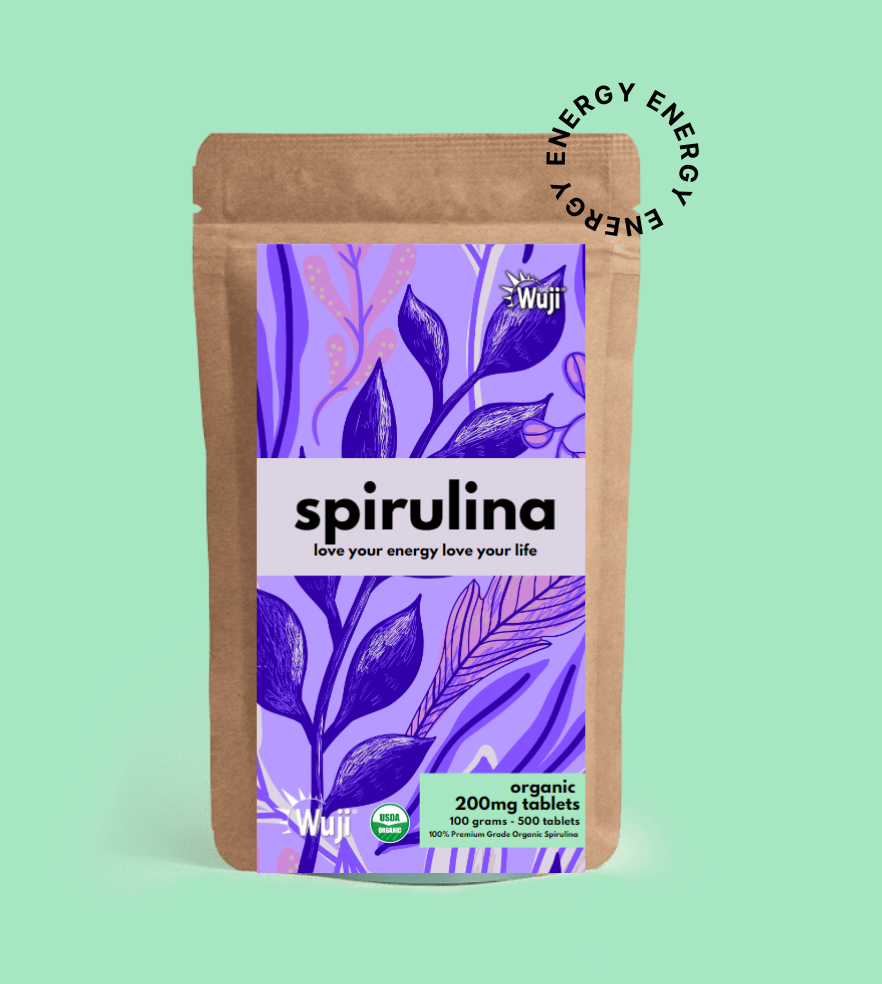
Nutrition Facts
33 Servings per container
Calories 12.3
Total Fat 0.21g
Cholesterol 0mg
Sodium 5.58mg
Total Carbohydrate 0.5g
Dietary Fiber 0.06g
Total Sugars 0g
Protein 1.83g
Vitamins
Vitamin B1 144 mcg
Vitamin B2 126 mcg
Vitamin B6 21 mcg
Vitamin B12 3 mcg
Vitamin E 198 mcg
Pantothenic Acid 24 mcg
Niacin 480 mcg
Inositol 2.1 mg
Biotin 0.75 mcg
Folate 1.83 mcg
Beta-Carotene 2.88 mg
Carotenoids 9 mg
Chlorophyll 45 mg
Minerals
Phosphorus 27.42 mg
Sodium 5.58 mg
Calcium 5.13 mg
Magnesium 7.89 mg
Potassium 31.44 mg
Iron 1.65 mg
Zinc 150 mcg
Manganese 7.8 mg
Copper 14.4 mcg
Selenium 420 mcg
Essential Amino Acids
Histidine 32.7 mg
Isoleucine 95.1 mg
Leucine 150.6 mg
Lysine 81 mg
Methionine 66 mg
Phenylalanine 117 mg
Threonine 83.4 mg
Tryptophan 25.2 mg
Valine 108.3 mg
Non-Essential Amino Acids
Alanine 123.3 mg
Arginine 91.8 mg
Aspartic Acid 164.1 mg
Cystine 19.5 mg
Glutamic Acid 240.6 mg
Proline 85.5 mg
Serine 82.2 mg
Tyrosine 61.5 mg
Free From
- Gluten Free
- Soy Free
- Dairy Free
- Pesticide Free
- GMO Free
- No Binders
- No Fillers
- No Preservatives
Vegan/Vegetarian
Keto Friendly
Paleo Friendly
Super Algae
Spirulina Benefits
Energy
One of the primary ways that Spirulina can increase energy levels is through its high content of nutrients that are essential for energy production. Spirulina is a rich source of B vitamins, including thiamin, riboflavin, and niacin, which are involved in the conversion of food into energy. Spirulina also contains iron, which is necessary for the production of hemoglobin, a protein in red blood cells that carries oxygen to the body's tissues. When the body has sufficient oxygen, it can produce energy more efficiently, leading to increased energy levels.
Spirulina also contains antioxidants, such as phycocyanin and beta-carotene, that can help to reduce inflammation and oxidative stress in the body. Chronic inflammation and oxidative stress can lead to fatigue and reduced energy levels, so reducing these factors can lead to increased energy levels.
Furthermore, Spirulina has been shown to improve endurance and reduce fatigue during exercise. This is likely due to Spirulina's ability to increase oxygen uptake and utilization, as well as its anti-inflammatory properties.
Finally, Spirulina contains gamma-linolenic acid (GLA), an omega-6 fatty acid that has been shown to have anti-inflammatory properties and may help to reduce fatigue and increase energy levels.
Spirulina's nutrient composition and ability to reduce inflammation and oxidative stress make it a promising natural supplement for increasing energy levels and reducing fatigue.
Brain Function, Clarity and Focus
Spirulina has been shown to have several potential benefits for brain function, including improved cognitive performance, memory, and mood. These benefits are due to its unique nutrient composition, which contains several key components that support brain health.
One of the primary ways that Spirulina helps with brain function is through its high content of antioxidants. Spirulina is rich in phycocyanin, a powerful antioxidant that has been shown to protect against oxidative stress and inflammation in the brain. By reducing oxidative stress, Spirulina can help to protect against damage to brain cells, which can lead to cognitive decline.
Spirulina also contains high levels of amino acids, including tryptophan, which is a precursor to serotonin. Serotonin is a neurotransmitter that is essential for regulating mood, and low levels of serotonin have been linked to depression and anxiety. By providing the building blocks for serotonin production, Spirulina can help to support healthy mood and reduce symptoms of depression and anxiety.
Additionally, Spirulina is rich in omega-3 fatty acids, which are essential for brain health. Omega-3s are crucial for maintaining the structure and function of brain cells and have been linked to improved cognitive performance and memory.
Finally, Spirulina contains several B vitamins, including vitamin B12, which are essential for healthy brain function. B vitamins play a crucial role in producing and maintaining brain chemicals and have been linked to improved cognitive performance and reduced risk of cognitive decline.
Overall, Spirulina's unique nutrient profile makes it a promising natural supplement for improving brain function and supporting healthy cognition, mood, and memory.
Muscle Recovery
Spirulina has several potential benefits for muscles and muscle recovery due to its unique nutrient profile and anti-inflammatory properties.
One of the primary ways that Spirulina can benefit muscles is through its high content of protein. Spirulina is a rich source of complete protein, meaning it contains all nine essential amino acids that the body needs to build and repair muscle tissue. This makes Spirulina a valuable supplement for athletes and those looking to build or maintain muscle mass.
Spirulina is also rich in antioxidants, including phycocyanin and beta-carotene. These antioxidants can help to reduce inflammation in the body, which is a major contributor to muscle soreness and fatigue. By reducing inflammation, Spirulina can help to speed up muscle recovery and reduce the risk of injury.
In addition, Spirulina contains high levels of vitamins and minerals that are essential for muscle function, including magnesium, potassium, and calcium. These minerals help to regulate muscle contractions and support healthy muscle function.
Finally, Spirulina contains gamma-linolenic acid (GLA), an omega-6 fatty acid that has been shown to have anti-inflammatory properties and may help to reduce muscle soreness and fatigue.
Overall, Spirulina's nutrient composition and anti-inflammatory properties make it a promising natural supplement for supporting muscle growth, reducing muscle soreness and fatigue, and improving muscle recovery after exercise.
Cardiovascular Health
Spirulina has been shown to have several potential benefits for cardiovascular health due to its nutrient composition and anti-inflammatory properties.
One of the primary ways that Spirulina promotes cardiovascular health is by reducing inflammation in the body. Chronic inflammation is a contributing factor to the development of cardiovascular disease, and Spirulina's high content of antioxidants, including phycocyanin, can help to reduce inflammation and oxidative stress in the body.
Spirulina also contains a unique type of protein called phycobiliprotein, which has been shown to have cholesterol-lowering effects. High levels of LDL cholesterol can increase the risk of heart disease, and Spirulina's ability to reduce LDL cholesterol levels may help to lower this risk.
Furthermore, Spirulina is rich in nutrients that are essential for cardiovascular health, such as potassium, magnesium, and calcium. These minerals help to regulate blood pressure and support healthy heart function. Spirulina also contains gamma-linolenic acid (GLA), an omega-6 fatty acid that has been shown to help lower blood pressure and reduce the risk of heart disease.
Finally, Spirulina has been shown to improve endothelial function, which is the ability of blood vessels to dilate and contract. Impaired endothelial function is a risk factor for cardiovascular disease, and Spirulina's ability to improve endothelial function may help to reduce this risk.
Overall, Spirulina's anti-inflammatory properties, cholesterol-lowering effects, and nutrient composition make it a promising natural supplement for promoting cardiovascular health and reducing the risk of heart disease.
Promotes Alkalinity
Spirulina is known to promote alkalinity in the body through its nutrient composition. It contains a high concentration of chlorophyll, which is considered a potent alkalizing agent due to its molecular structure, which is similar to that of human blood.
It helps to alkalize the body by binding with acidic molecules and removing them from the body. As a result, consuming Spirulina regularly may help to balance the pH levels in the body, reducing acidity and promoting an alkaline state.
Additionally, Spirulina is rich in minerals such as magnesium, potassium, and calcium, which also contribute to its alkalizing properties. These minerals play an essential role in regulating the acid-base balance in the body and help to neutralize acid-forming compounds.
Spirulina's protein content is also highly alkaline, meaning that it has a low acid-forming potential compared to other protein sources like meat and dairy. This can also contribute to its ability to promote alkalinity in the body.
Taking Spirulina has been shown to be an effective strategy to promote alkalinity in the body due to its unique nutrient profile and alkalizing properties!
Balance Blood Sugar Levels
Spirulina's protein content provides a sustained source of energy throughout the day by slowing down the release of sugars into the bloodstream.
In a study published in the journal Nutrients in 2011, it was revealed that taking Spirulina for eight weeks significantly increased insulin sensitivity by 224.7%. This improvement in insulin sensitivity can prevent the development of insulin resistance, which often triggers a cascade of hormonal complications, such as PCOS and endometriosis.
Curb Cravings & Prevent Overeating
In the event that you frequently experience hunger pangs or succumb to unhealthy snack cravings, our pure Spirulina may offer a viable solution. Comprised of 70% complete protein that is rapidly absorbed, as well as iron and an array of B vitamins, it can help promote satiety and curb the desire for unhealthy foods.
To instantly quell a craving, try consuming one serving of Spirulina powder in lemon water. Additionally, to reduce portion sizes and prevent overeating, consider consuming one serving of Spirulina 30 minutes to one hour before meals. This approach can prove highly effective in managing appetite and promoting healthy eating habits.
Hangover Recovery
One of the primary causes of hangovers is inflammation, which can lead to symptoms such as headache, nausea, and fatigue. Spirulina contains several antioxidants, such as phycocyanin and beta-carotene, which can help to reduce inflammation in the body. By reducing inflammation, Spirulina may help to alleviate some of the symptoms of a hangover.
Additionally, dehydration is a common symptom of hangovers, and Spirulina is a rich source of electrolytes, such as potassium and magnesium, which can help to replenish fluids and electrolytes lost during alcohol consumption. This can help to alleviate symptoms such as headache and fatigue.
Spirulina has also been shown to have potential benefits for liver health. The liver plays a key role in processing alcohol and removing toxins from the body. By supporting healthy liver function, Spirulina may help to alleviate some of the negative effects of alcohol on the body and promote faster recovery from a hangover.
History of Spirulina
Spirulina is a type of blue-green algae that has been around for billions of years. It is one of the oldest known life forms on Earth, with fossil records dating back more than 3 billion years.
While the specific origins of Spirulina are not well understood, it is believed to have evolved in the warm, alkaline waters of ancient lakes and oceans. Over time, it has adapted to various environmental conditions and is now found in many parts of the world, from Africa to Central America to Asia.
Despite its long history, Spirulina has only gained widespread recognition as a health food and supplement in recent decades, with increasing interest in its nutritional and therapeutic properties.

Aztecs
The Aztecs are believed to have been the first to cultivate Spirulina for food, harvesting it from Lake Texcoco in what is now Mexico. They called it "Tecuitlatl," which means "stone's excrement," due to its appearance. It was dried into cakes and used as a food source for long journeys and as a supplement during times of famine.
Illustration: Aztec harvesting Spirulina from lakes in Mexico. Drawing in Human Nature, March 1978, by Peter T. Furst.

Africa
In Africa, the Kanem Empire, which existed from the 8th to the 14th century in what is now Chad, was known to have used Spirulina as a food source as well. It was harvested from Lake Chad and dried into cakes that were consumed with other foods.
Photo: Women preparing to sun-dry Spirulina in a sand filter. Photos by Marzio Marzot from the FAO Report - The Future is an Ancient Lake, 2004.

Spirulina also has a long history of use in Asia. In Japan, it has been cultivated and consumed since the 1970s as a health food and supplement. It is often consumed in powdered or tablet form, and is also used as an ingredient in food products such as noodles, crackers, and energy bars.
Today, Spirulina is cultivated and consumed worldwide as a source of protein, vitamins, and other nutrients. It is often used as a supplement for athletes and fitness enthusiasts, as well as for individuals looking to boost their overall health and well-being.
Kanembu women harvesting Spirulina from Lake Boudou Andja, in Chad. Photo by Marzio Marzot from the FAO Report- The Future is an Ancient Lake, 2004.

NASA
NASA has conducted extensive research on Spirulina, a nutrient-dense vegetable, as a potential food for space travel to provide astronauts with foods rich in nutrients, vitamins, and minerals.
One of the main reasons NASA supports Spirulina as space food is due to its space-saving feature. It was discovered in the 1970s that Spirulina is a safe and practical choice of food that can be carried to space. Spirulina's concentrated composition with edible bacteria and micro-organisms makes it one of the most nutrient-dense foods available. This means that space travelers can carry light and have reassurance that they are not compromising on food quality or quantity
Scientific Studies about Chlorella and Spirulina
-
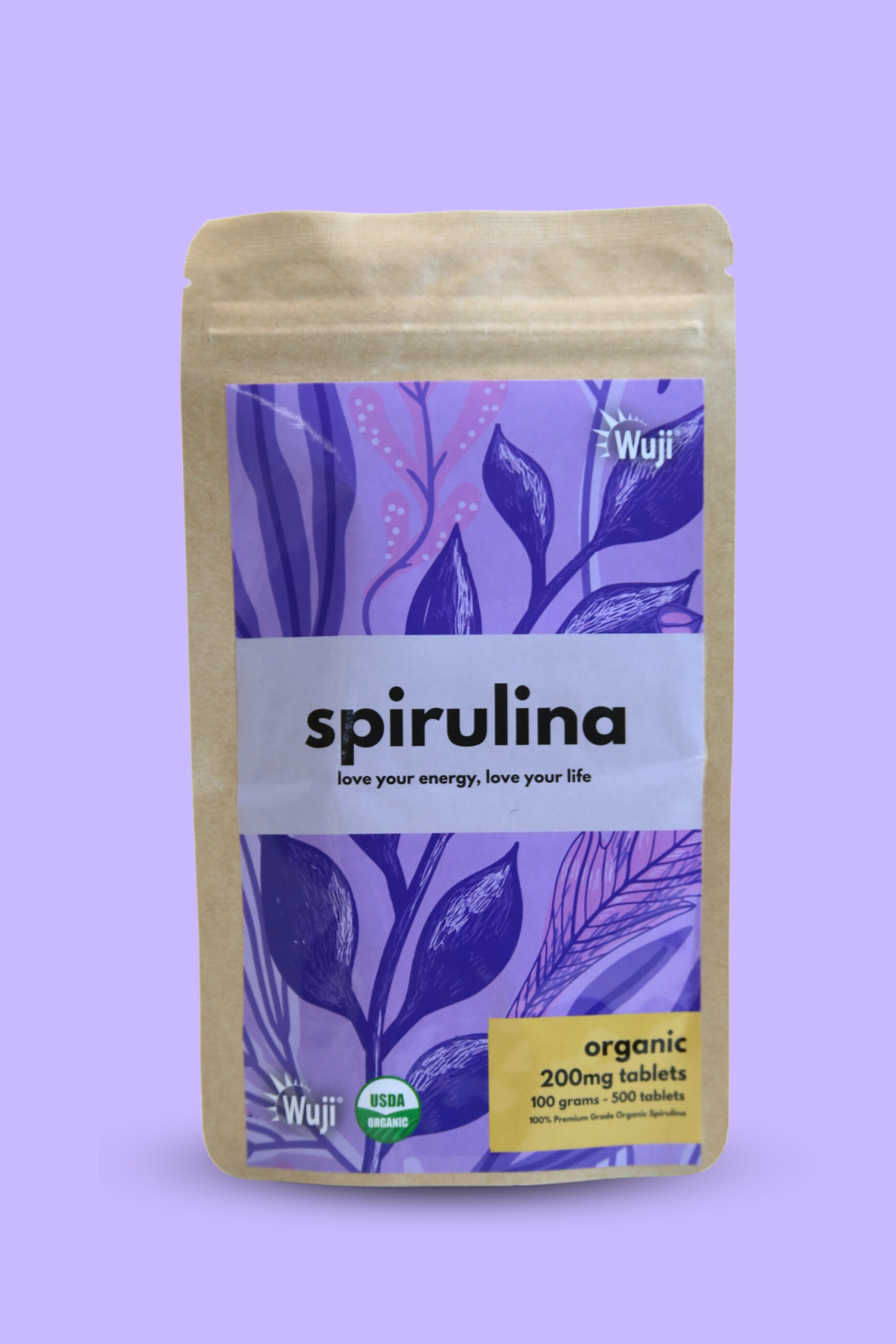
- How Specific Nutrients or Algae Support the Immune System
- Vitamin A and D are essential for building the immune system
- Vitamins and Trace Minerals that are required for Immune Functioning.
- Chlorella Shown to Provide Resistance to Infection
- Chlorella Shown To Reduce Infectious Viruses
- Chlorella Improves Immunity, Immune-Brain-Gut Axis & T- Cells
- Chlorella Improved Immune Response & Increased Natural Killer Cells
- Chlorella Reduced Symptoms from Colitis, Fibromyalgia, Hypertension
- Amino Cells critical for
Immune System
-
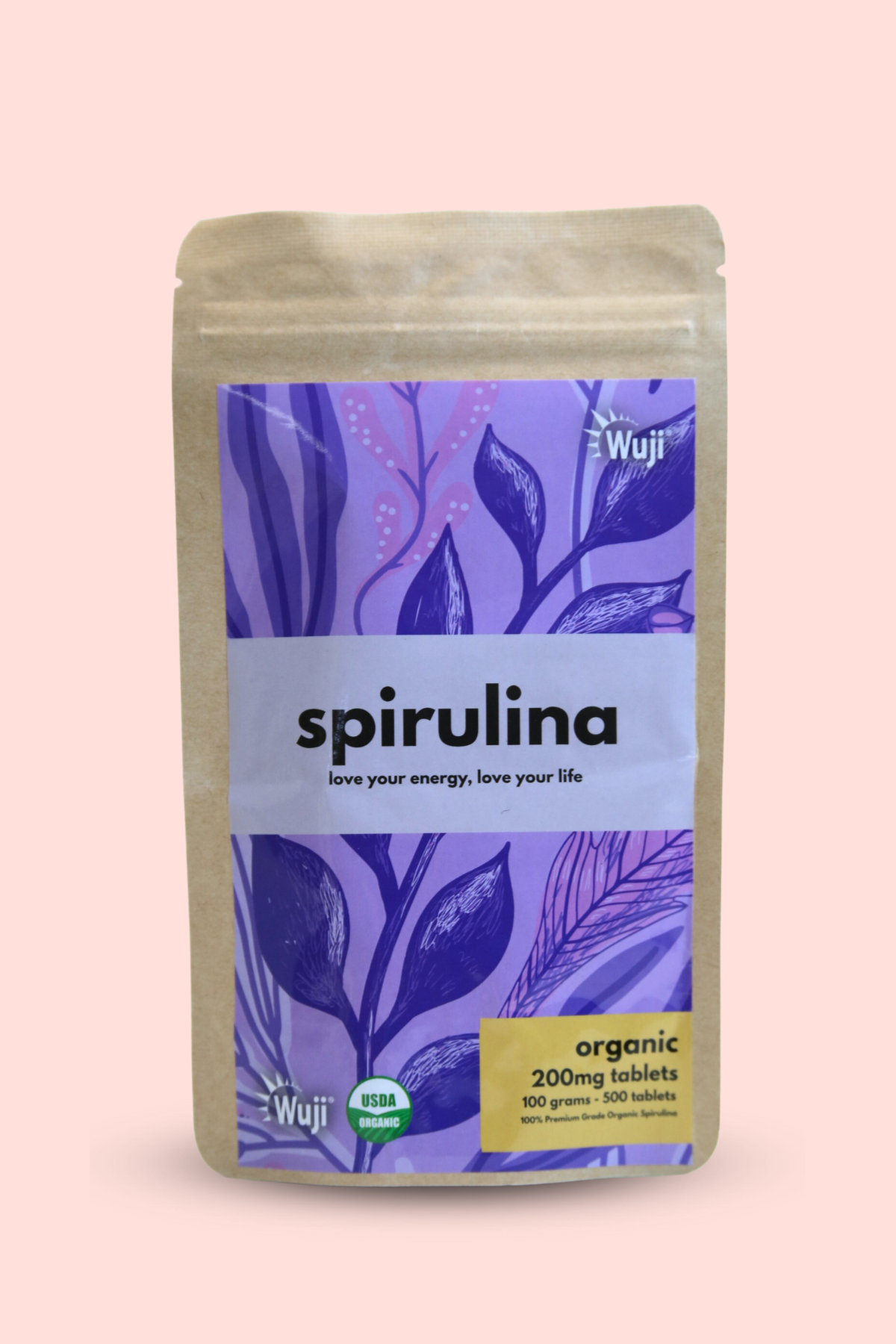
- Chlorella Helped Reduce High Blood Pressure & Hypertension
- Chlorella Proven to Remove Heavy Metals
- Chlorella Proven to Decrease Tissue Damage from Heavy Metals
- Chlorella Proven to Remove Poisons from Food in Digestive Tract
- Chlorella Proven to Reduce Inflammation
- Chlorella Proven Beneficial Affects in Reducing Mental Stress
- Chlorella Found to Help Relieve Symptoms from Fibromyalgia
- Chlorella Found to Help Reduce Blood Pressure & Hypertension
-
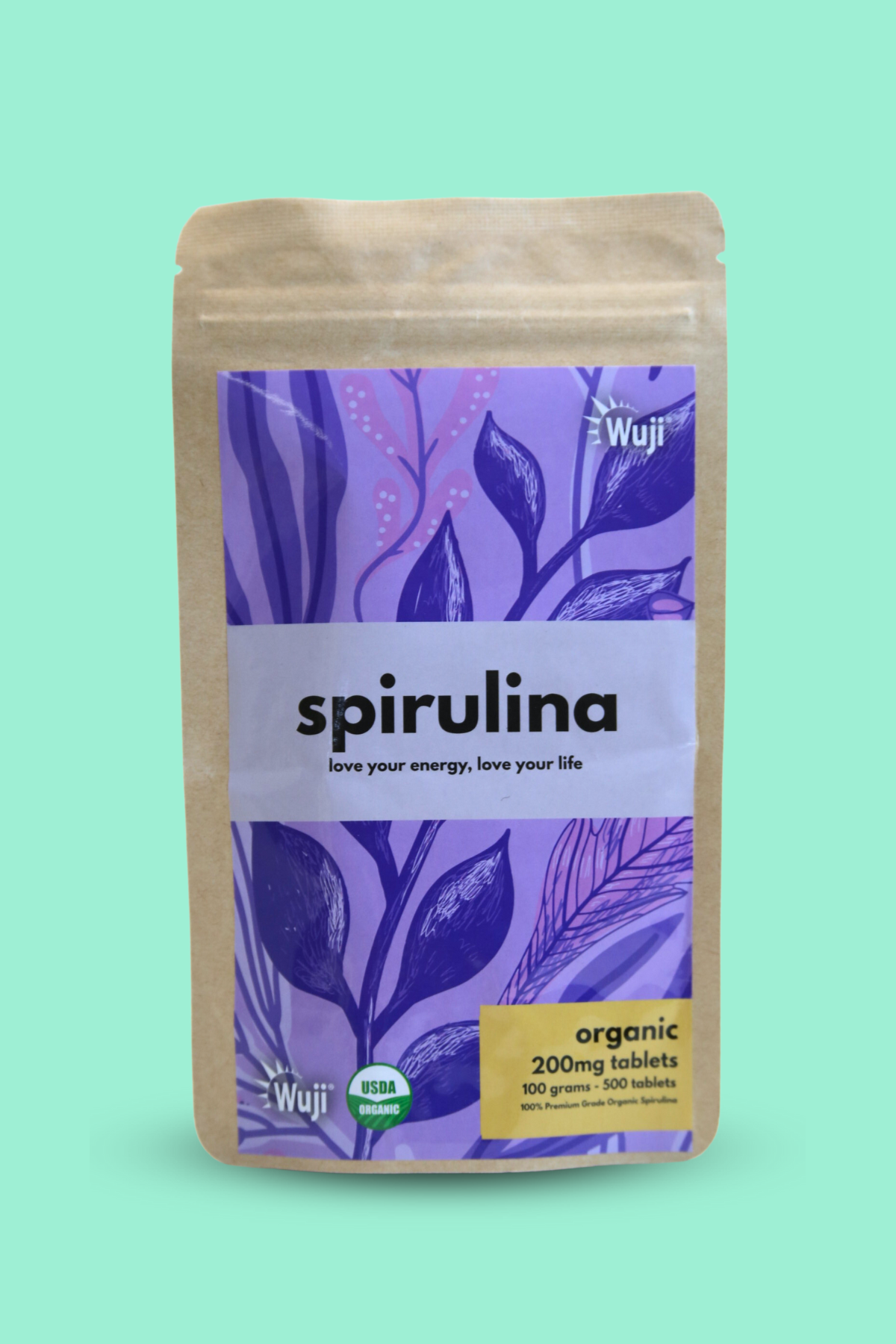
- Spirulina Proven to Provide Immune support for elderly
- Chlorella Proven to Provide Immune support for athletes
- Nutrition and Immune System in the Field
- How Nutrition Impacts the Immune System Pub
- Amino Acids support Immune Functioning
- Chlorella Proven to Provide General Immune boost
- Chlorella Improves Quality of Life for Cancer Patients
- Chlorella Had Anti-Tumor Effect and Extended Survival Times
- Chlorella Showed Anti-aging and Anti-Inflammatory Benefits
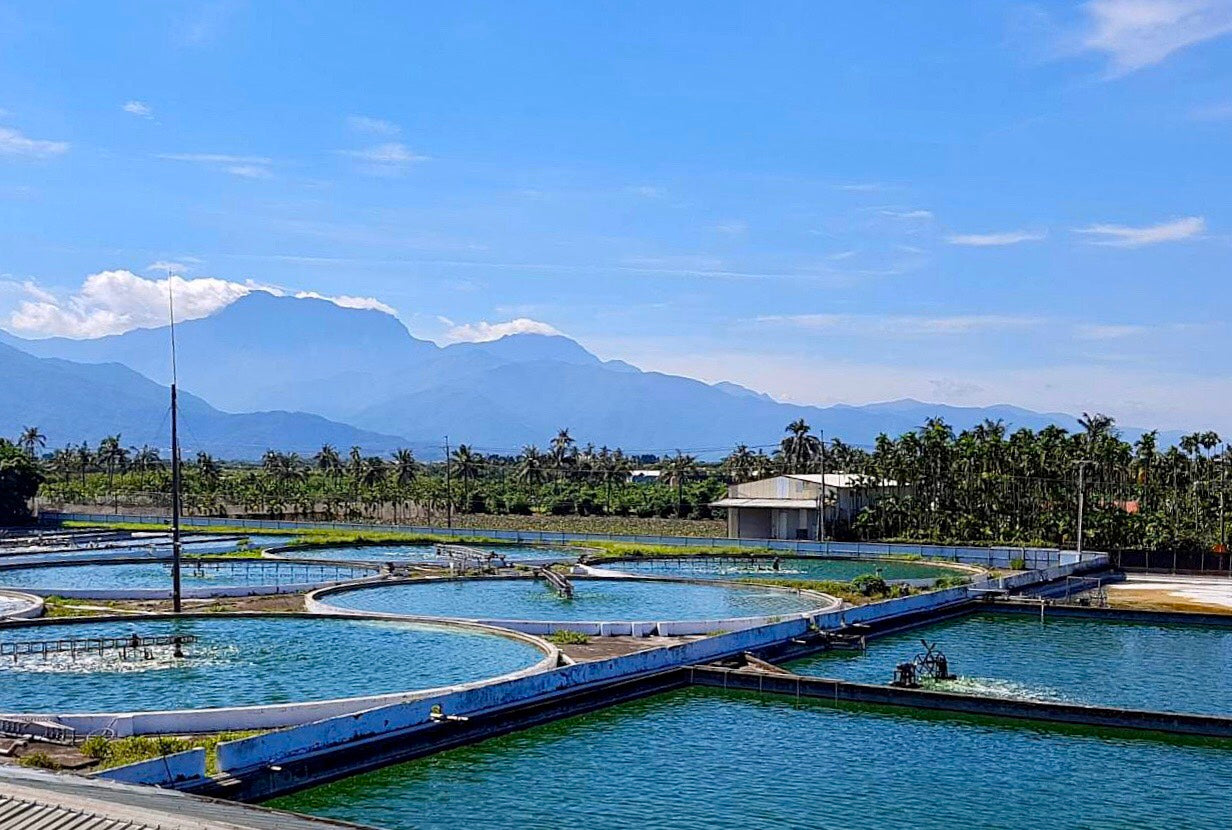
Proud to be Grown in Taiwan
Wuji Chlorella and Spirulina are harvested at the base of the Dawu Mountain Nature Reserve. A protected area set along the southeastern coast of Taiwan. This area boasts undulating terrain, alpine lakes, cascading waterfalls, and old-growth forests where wild animals roam.
Chlorella samples from Taiwan have been found to be the purest and cleanest in the world. Wuji Chlorella and Spirulina undergo rigorous testing at every stage of cultivation and production to ensure they are free from heavy metal contamination, BMAA, algal toxins, and radiation. Wuji takes pride in offering high quality Organic Algae.
Blog posts
View all-
Microplastics Are Breathing Into Our Lives, And...
Wuji LifeMicroplastics aren’t just polluting our oceans, they’re polluting us. New research shows microplastics are now found in human blood, lungs, the gut, and even the placenta, quietly disrupting hormones, triggering inflammation,...
Microplastics Are Breathing Into Our Lives, And...
Wuji LifeMicroplastics aren’t just polluting our oceans, they’re polluting us. New research shows microplastics are now found in human blood, lungs, the gut, and even the placenta, quietly disrupting hormones, triggering inflammation,...
-
Biohack Your Genes: The Microalgae-Methylation ...
Wuji LifeIn addition to prioritizing whole foods, studies show that microalgae such as Wuji Chlorella and Wuji Spirulina have been shown to promote methylation by way of nourishing the body with...
Biohack Your Genes: The Microalgae-Methylation ...
Wuji LifeIn addition to prioritizing whole foods, studies show that microalgae such as Wuji Chlorella and Wuji Spirulina have been shown to promote methylation by way of nourishing the body with...
-
Heavy Metal Detoxification with Chlorella
Wuji LifeYou Can’t Escape Toxins, But You Can Fight Back! Our food, soil, and air are flooded with industrial chemicals. Learn why Chlorella is your body’s secret weapon in the modern toxic...
Heavy Metal Detoxification with Chlorella
Wuji LifeYou Can’t Escape Toxins, But You Can Fight Back! Our food, soil, and air are flooded with industrial chemicals. Learn why Chlorella is your body’s secret weapon in the modern toxic...
Subscribe to our emails
Join our email list for exclusive offers and the latest news.



